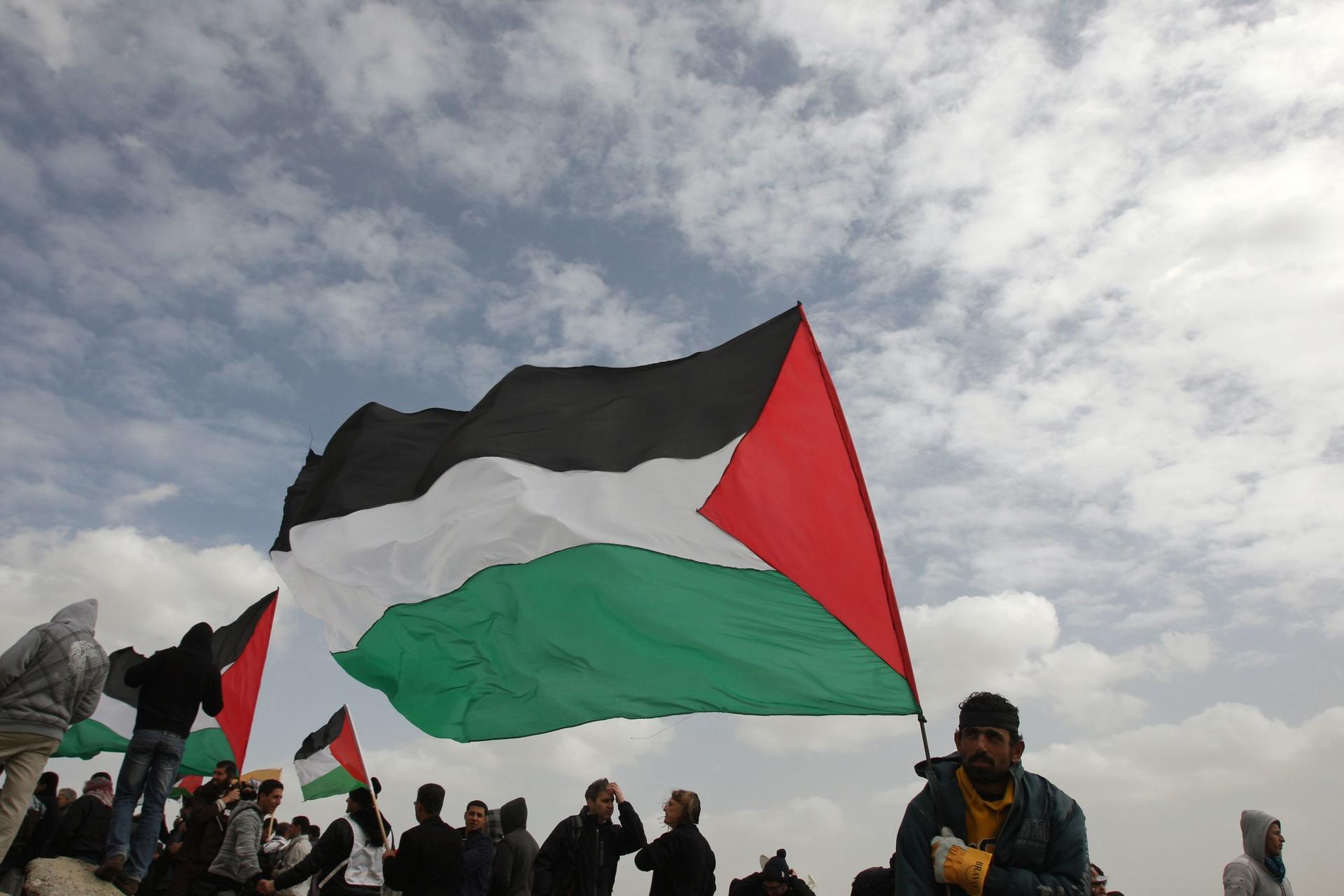Hundreds of Palestinian prisoners in Israeli jails plan mass hunger strike
An activist waves the Palestinian flag at a protest in the West Bank village of Bilin on February 17, 2012, during a weekly demonstration against Israel’s controversial separation barrier and in support of prisoner Khader Adnan, a senior member of the Islamic Jihad jailed in Israel who is due to go free on Tuesday.
Some 1,600 Palestinian prisoners held in Israeli jails are set to embark on a mass hunger strike on Tuesday to protest against their imprisonment without charge and the use of solitary confinement.
Palestinian Prisoners Minister Issa Qaraqaa told the Agence France Presse on Sunday: “There are 1,600 Palestinian prisoners who will start a hunger strike on Tuesday in order to improve their conditions inside the occupation prisons and we have set up a national program to demonstrate solidarity with them.”
The hunger strike is to take place on the same day as Prisoners’ Day, a yearly event where demonstrations and rallies are held in solidarity with the estimated 4,700 Palestinians currently imprisoned inside Israel’s jails.
More than 300 of those inmates are being held under “administrative detention,” meaning that no trial is held, neither the prisoners nor their lawyers are informed of the accusations against them, and an Israeli military judge decides the term of their imprisonment, according to The Guardian.
More from GlobalPost: For Israel’s Palestinians, an issue unsettled
At least 11 Palestinian prisoners are already on hunger strike, with three having been transferred to prison hospitals due to the deterioration in their health.
Two strikers have refused food for 46 days. Bilal Diab, 27, has also refused to accept fluids either orally or intravenously since April 8, and has reportedly lost consciousness on a number of occasions.
According to Haaretz, Israeli Prison Service officials claimed to have no knowledge of next week’s planned hunger strike, adding that the threat of a strike is often employed as a tool by inmates.
Hunger strikes have become an increasingly popular form of resistance among Palestinian prisoners following two high-profile campaigns in recent months.
Thirty-three-year-old Khader Adnan went 66 days without food to protest against his detention, calling off his action only after a deal was struck ensuring he would be freed at the end of his four-month term – which also ends on Tuesday.
Shortly before that deal was concluded a female prisoner from the West Bank, Hanaa Shalabi, was released from jail and deported to Gaza after 43 days on hunger strike.
More from GlobalPost: Has Israel's regional isolation helped protect its economy?
We want to hear your feedback so we can keep improving our website, theworld.org. Please fill out this quick survey and let us know your thoughts (your answers will be anonymous). Thanks for your time!
